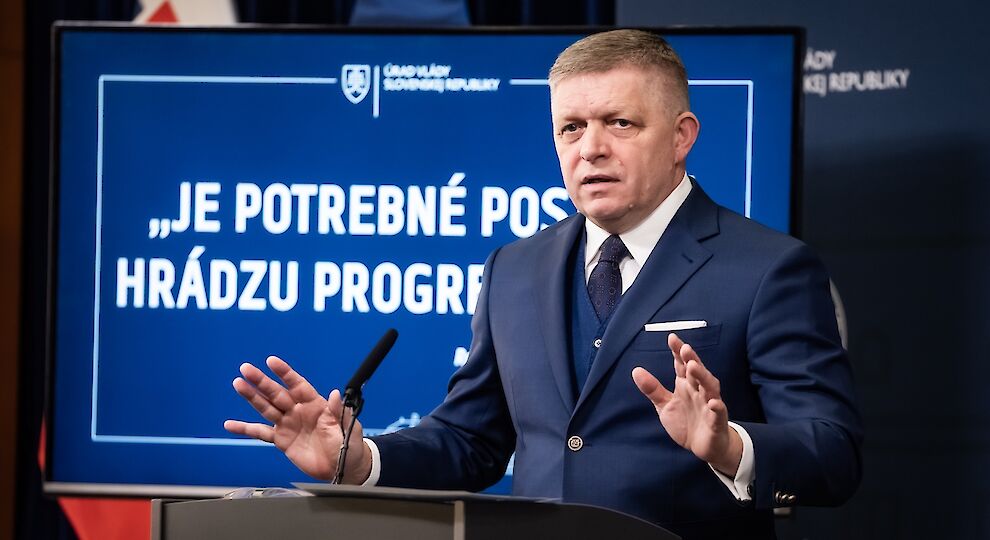The National Council of the Slovak Republic has adopted Resolutionwhich instructs members of Prime Minister Robert Fico's government not to vote for new sanctions and trade restrictions against the Russian Federation in international organisations.
The proposal, initiated by MPs from the smallest governing party, the SNS, has won the support of a majority of MPs in the governing coalition. The document, submitted in March 2025, highlights the need to protect Slovakia's economic and energy interests in the context of rising energy prices and disrupted supply chains.
The resolution of the Slovak Parliament states that the sanctions policy against Russia is contributing to the rise in energy prices, which weakens the competitiveness of Slovak companies and negatively affects the economic benefit of the country.
This attitude reflects Slovakia's long-term dependence on Russian energy, especially natural gas and oil. According to data from the Slovak Gas Industry (SPP), gas imports from Russia accounted for over 60 % of total consumption in 2022, making the country vulnerable to global energy shocks.
A report by the Economic Times on 15 April 2025 warns that rising energy costs are threatening key industries such as chemicals and engineering, increasing pressure on the government to look for alternative solutions.
In response to these calls, the Slovak Parliament unequivocally rejects the introduction and extension of sanctions against Russia, as these actions are damaging to the Slovak economy, industry and population. The resolution calls on the government to actively promote national economic interests and oppose measures that have negative effects. The members of the cabinet are to work within international organisations such as the European Union and in accordance with their obligations under international treaties to stabilise the energy market, eliminate price volatility and protect Slovakia's strategic interests.
The move may cause tensions within the EU, where sanctions policy towards Russia is coordinated and requires consensus among member states. Euractiv's analysis of 3 May 2025 suggests that Slovakia's opposition to further sanctions could complicate a unified EU position. On the other hand, the SME newspaper in its edition of 10 April 2025 quotes economists who warn that the continuation of sanctions without alternative energy sources could lead to further price increases and threaten economic stability. The resolution thus reflects Slovakia's desire for a pragmatic approach that favours domestic interests.
gnews.cz - GH



